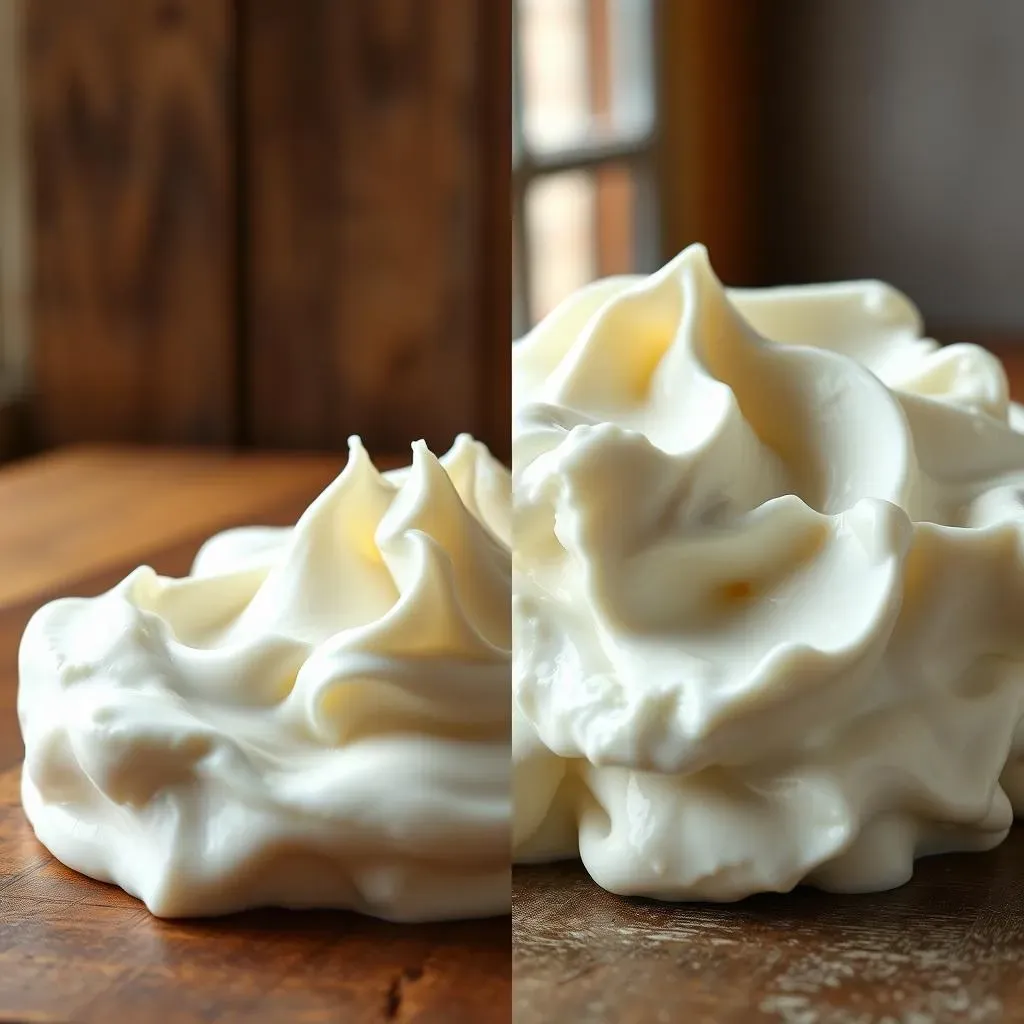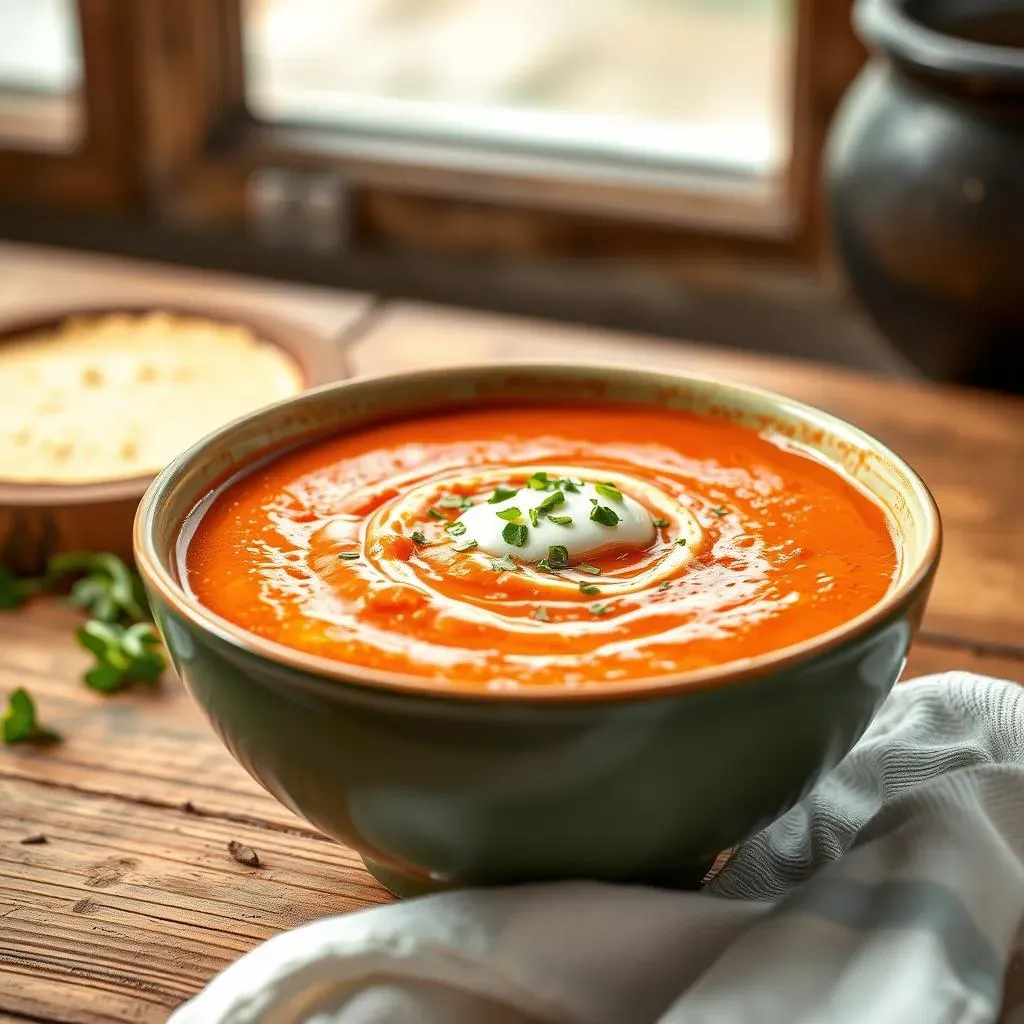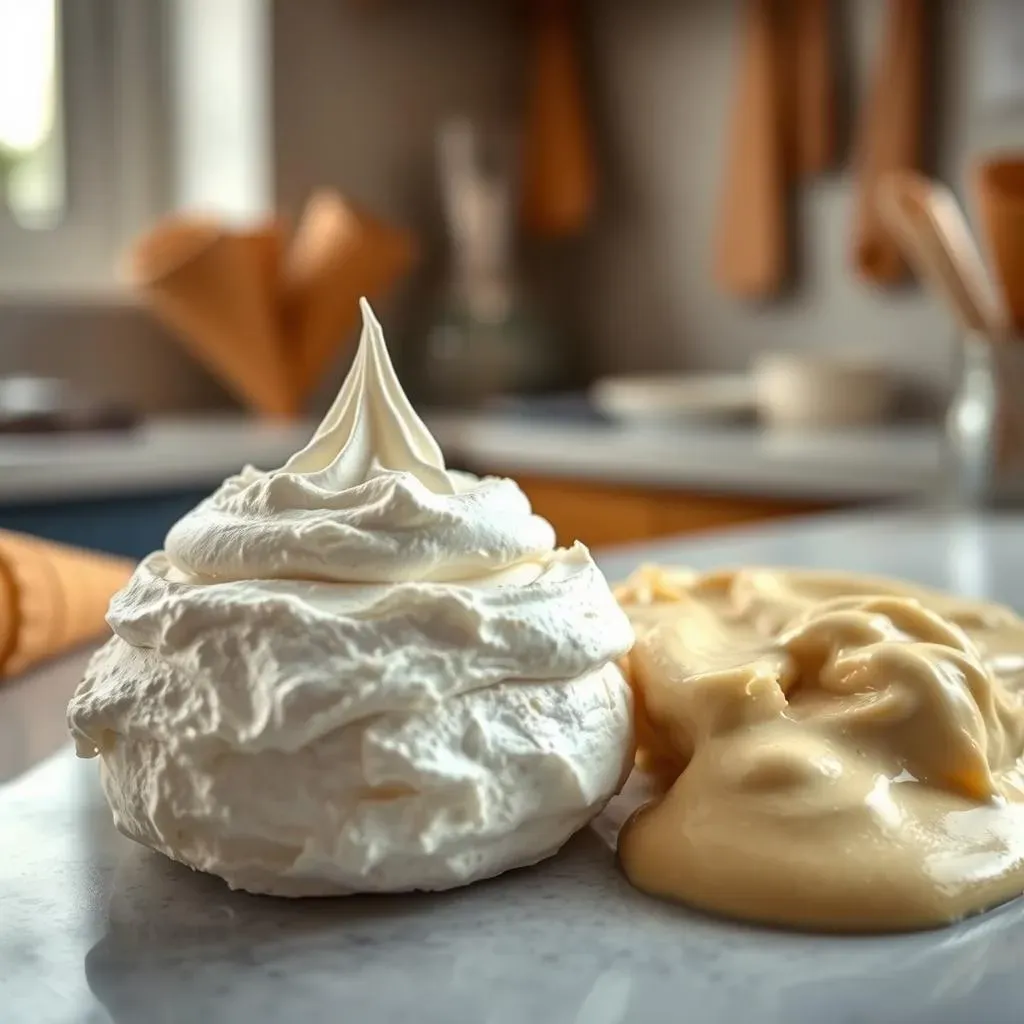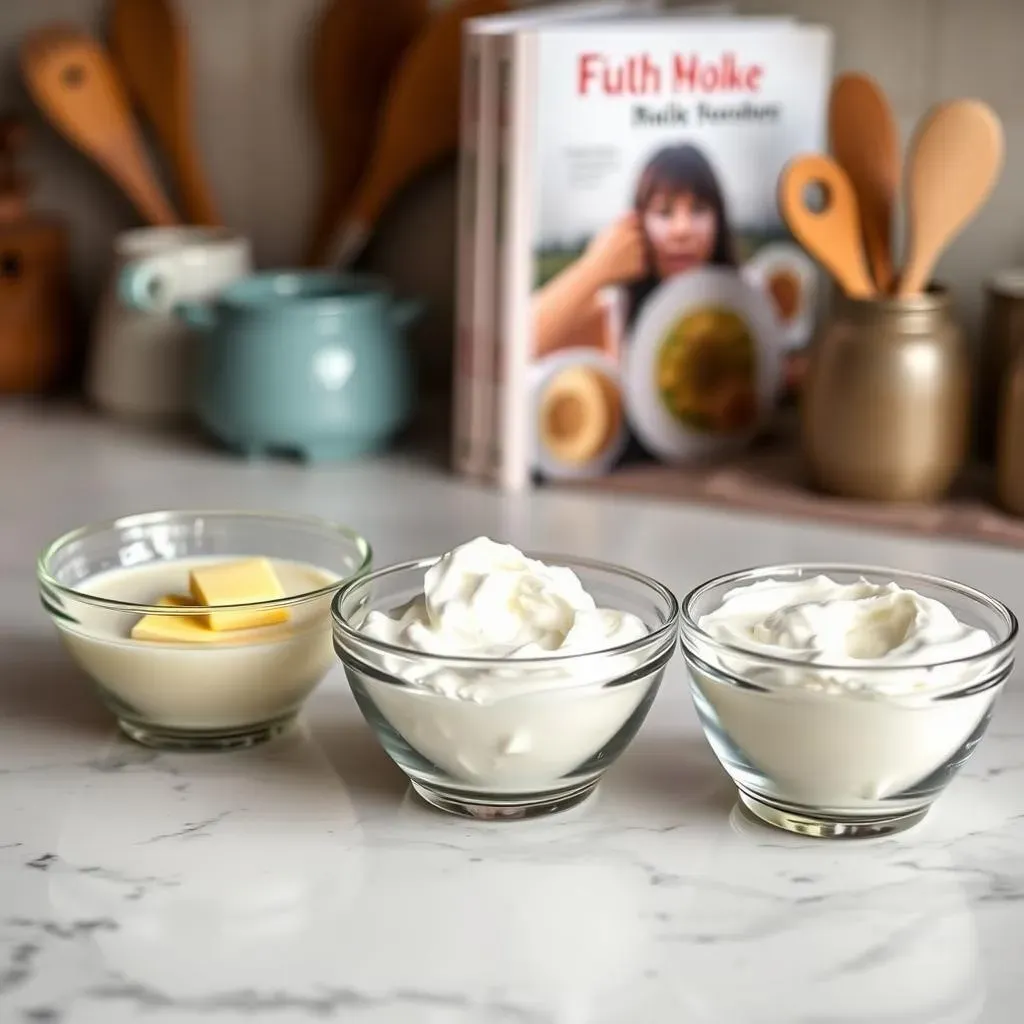Table of Contents
Ever stared blankly at a recipe, wondering if you can swap sour cream for heavy cream? We've all been there! The question, "can I substitute sour cream for heavy cream?", pops up more often than you might think. This article cuts through the confusion, providing a clear and concise guide to help you make the right decision. We'll explore the key differences between these two dairy delights, revealing when a sour cream swap is a brilliant idea, and when it's a recipe disaster waiting to happen. We'll examine specific recipes and situations where sour cream shines as a substitute, and equally importantly, where it utterly fails. Finally, we'll equip you with a range of alternatives to both sour cream and heavy cream, ensuring you’re never caught short again. Get ready to master the art of dairy substitutions – your culinary adventures await!
Understanding the Differences: Sour Cream vs. Heavy Cream

Understanding the Differences: Sour Cream vs. Heavy Cream
Fat Content and Texture
The most significant difference between sour cream and heavy cream lies in their fat content and resulting texture. Heavy cream boasts a much higher fat percentage (typically around 36%), making it incredibly rich and thick. Think of it like a luxurious, velvety cloud. Sour cream, on the other hand, has a lower fat content (around 18-20%), resulting in a tangier, thicker, but less intensely rich texture. It's more like a creamy yogurt, less airy and more substantial. This difference in fat content directly impacts how they behave in recipes.
Consider this: Would you use a fluffy cloud to build a sturdy castle? Probably not! Similarly, heavy cream's high fat content makes it ideal for whipping into airy peaks for desserts, while sour cream’s lower fat content makes it less suitable for this purpose. However, sour cream's thicker consistency can be beneficial in other applications, such as adding creaminess to dips or sauces. If you're looking for a substitute for sour cream, you might find that Greek yogurt is a good option, but it has less fat.
Feature | Heavy Cream | Sour Cream |
|---|---|---|
Fat Content | 36% or higher | 18-20% |
Texture | Thick, rich, pourable | Thick, creamy, tangy |
Taste | Mildly sweet | Tart, tangy |
Flavor Profile: Sweet vs. Tangy
Beyond texture, the flavor profiles of sour cream and heavy cream differ significantly. Heavy cream possesses a subtly sweet, almost buttery flavor. It's a blank canvas, perfectly suited to enhance other flavors without overpowering them. Think of it as a gentle whisper in your culinary symphony. Sour cream, however, brings a distinct tartness and tang to the table. This tangy edge can be a delightful addition to savory dishes, adding complexity and depth. However, this tanginess can clash with the delicate flavors of some desserts. Sometimes, you might prefer to use butter instead of sour cream.
For instance, imagine adding sour cream to a delicate strawberry shortcake. The tangy flavor of the sour cream might overpower the sweetness of the strawberries. Conversely, using sour cream in a chili would amplify the savory notes and add a wonderful creamy texture. This contrast in flavor profiles highlights the importance of considering the overall taste balance of your recipe before attempting any substitutions.
- Heavy cream: Mildly sweet, buttery
- Sour cream: Tart, tangy, slightly acidic
Acidity and Heat Sensitivity
Sour cream's higher acidity compared to heavy cream can impact its behavior when exposed to heat. While heavy cream can generally withstand higher temperatures without curdling, sour cream is more prone to separating or curdling if subjected to excessive heat. This is because the proteins in sour cream can denature and clump together at higher temperatures. If you're using sour cream in a hot dish, it's generally best to stir it in towards the end of the cooking process to minimize the risk of curdling. Knowing this, you can choose the right ingredient for your dish.
This difference in heat sensitivity is a crucial factor to consider when deciding whether to substitute sour cream for heavy cream. Recipes involving prolonged cooking or high temperatures are generally better suited to heavy cream. If you're unsure about how a recipe will react, it's always a good idea to start with a small substitution and see how it turns out. If you're looking for a sour cream substitute that works well in baking, you may find buttermilk a useful option.
When Sour Cream Works as a Substitute: Recipes and Considerations

When Sour Cream Works as a Substitute: Recipes and Considerations
Believe it or not, sour cream can actually be a surprisingly effective substitute for heavy cream in certain situations. Its thicker consistency and tangy flavor profile can add unique depth to various dishes. The key is understanding *where* its strengths lie. Think of it like this: heavy cream is a versatile all-rounder; sour cream is a specialist, excelling in specific roles. For instance, in many savory dishes, sour cream's tang complements the other flavors beautifully. It's a game-changer in creamy soups, dips, and even some sauces.
Let's say you're making a creamy tomato soup. Swapping in sour cream for heavy cream adds a delightful tanginess that cuts through the sweetness of the tomatoes. This creates a more complex and interesting flavor profile than you'd get with just heavy cream. The result? A soup that’s both creamy and exciting! Similarly, in a creamy spinach and artichoke dip, sour cream's thickness and tang are a perfect match. It creates a rich, flavorful dip that's far more interesting than one made with just heavy cream. If you need a sour cream substitute for baking, check out our guide on substituting buttermilk.
- Savory soups and stews
- Dips and spreads (e.g., spinach artichoke dip)
- Certain sauces (where the tanginess is desirable)
- Some chili recipes (to add creaminess and tang)
However, remember that sour cream's higher acidity means it's not ideal for recipes requiring prolonged cooking or high heat. It's more likely to curdle than heavy cream under these conditions. Always add it towards the end of cooking for best results. If you're unsure, start with a smaller amount and adjust as needed. For a different type of creamy texture, you might consider using cream cheese as a substitute.
One crucial point: always consider the overall flavor profile of your recipe. Sour cream's tanginess might clash with delicate desserts or dishes where a subtle, sweet creaminess is desired. In these cases, sticking with heavy cream or exploring other alternatives is often the better choice. Think of it as choosing the right tool for the job – you wouldn’t use a hammer to screw in a screw, would you?
Recipe Type | Sour Cream as Substitute? | Considerations |
|---|---|---|
Savory Soups | Yes, often enhances flavor | Add at the end of cooking |
Creamy Dips | Yes, adds thickness and tang | Consider the other flavors |
Desserts | Generally No | Tanginess might clash with sweetness |
Sauces | Sometimes | Depends on the desired flavor profile |
When Sour Cream Fails: Situations Where Substitution is Inappropriate

When Sour Cream Fails: Situations Where Substitution is Inappropriate
Let's flip the script and talk about when sour cream is a definite *no-go* as a heavy cream substitute. Its tangy nature and lower fat content make it unsuitable for many recipes where heavy cream's richness and neutrality are crucial. Think delicate desserts like mousses, whipped creams, or ice creams; sour cream's acidity would completely ruin the subtle sweetness and create an unpleasant, curdled mess. Similarly, in sauces where a smooth, velvety texture is paramount – like a classic béchamel or a delicate white sauce – sour cream's tang would clash and create an undesirable separation. It's a recipe for disaster!
Imagine trying to make a light and airy pavlova using sour cream instead of heavy cream. The result would be a dense, tangy, and frankly unappetizing mess, far from the delicate, crisp meringue you're aiming for. The same principle applies to many baking recipes that rely on the emulsifying properties of heavy cream to create a light and fluffy texture. In these cases, attempting to substitute with sour cream will almost certainly lead to disappointment. If you're looking for a substitute for sour cream in a cheesecake, you might find that Greek yogurt is a better option, but even then, it's not a perfect replacement.
- Desserts (mousses, whipped cream, ice cream)
- Baking recipes requiring a light and airy texture
- Delicate sauces (béchamel, velouté)
- Recipes requiring high heat or prolonged cooking
Furthermore, many recipes rely on the neutral flavor of heavy cream to allow other ingredients to shine. Sour cream's assertive tanginess would overpower these flavors, creating an unbalanced and unpleasant result. For example, in a delicate custard or crème brûlée, the subtle sweetness and creamy texture of heavy cream are key to the recipe's success. Introducing sour cream would completely alter the flavor profile, leaving you with a dish that's far from the intended outcome. If you're looking for a substitute for sour cream in general, you can check out our guide on sour cream substitutes.
In summary, while sour cream can be a fantastic ingredient in its own right, it's not a direct replacement for heavy cream in many recipes. Understanding the nuances of each ingredient and their impact on the final product is key to culinary success. Using the wrong ingredient can lead to subpar results, or even a complete culinary catastrophe! Remember to always consider the specific needs of your recipe before making any substitutions.
Recipe Type | Suitable for Sour Cream? | Why Sour Cream Fails |
|---|---|---|
Meringues | No | Acidity prevents proper whipping |
Creamy Sauces | No | Causes separation and tangy flavor |
Ice Cream | No | Unpleasant tanginess and texture |
Custards | No | Alters delicate flavor balance |
Alternatives to Both Sour Cream and Heavy Cream: Exploring Other Options

Alternatives to Both Sour Cream and Heavy Cream: Exploring Other Options
Milk and Butter Blend: A Simple Solution
Sometimes, the simplest solution is the best. For a heavy cream substitute, you can easily whip up a blend of milk and melted butter. The butter provides the richness, while the milk adds volume and creaminess. The ratio depends on the recipe, but a good starting point is equal parts milk and melted butter. This blend works well in sauces, soups, and some baking applications, providing a creamy texture without the tang of sour cream. It’s a great all-purpose substitute when you're short on heavy cream and don't want the sourness of sour cream.
This method offers a neutral flavor profile, making it a versatile option for various dishes. For instance, in a creamy pasta sauce, this milk-butter blend would create a smooth and rich texture without overpowering the other flavors. Remember, always let the butter cool slightly before mixing it with the milk to prevent the milk from curdling. If you're looking for a substitute for sour cream in a cheesecake, you might consider heavy cream, but it will lack the tang.
Ingredient | Amount | Use Case |
|---|---|---|
Milk (whole milk preferred) | 1/2 cup | Adds volume and creaminess |
Melted Butter | 1/2 cup | Provides richness and texture |
Greek Yogurt: A Tangy Twist
Greek yogurt offers a thicker, creamier alternative to sour cream, especially in savory dishes. Its higher protein content lends a thicker consistency, and while it does have a tang, it's often less pronounced than sour cream. It's a good choice for dips, sauces, and some soups where a slight tanginess won't clash with the other flavors. The fat content is lower than sour cream, so it might not be as rich, but it’s a healthier choice.
The tang of Greek yogurt can actually enhance certain savory dishes. For example, in a creamy tomato soup, the slight tartness of Greek yogurt complements the sweetness of the tomatoes, adding complexity and depth to the flavor. It’s also a great option for those seeking a healthier substitute for sour cream. Remember, plain Greek yogurt is best for this purpose, avoiding any flavored varieties that might overpower the other flavors in your dish. If you're looking for a substitute for sour cream, you might want to check out our guide on yogurt substitutes.
- Good for savory dishes
- Thicker consistency than sour cream
- Healthier alternative
- Use plain, unflavored yogurt
Vegan Options: Coconut Cream and Cashew Cream
For those following a vegan diet, coconut cream and cashew cream are excellent substitutes for both sour cream and heavy cream, depending on your needs. Coconut cream, especially full-fat versions, provides a rich and creamy texture, though it does impart a distinct coconut flavor that might not be suitable for all recipes. Cashew cream, on the other hand, offers a milder, more neutral flavor profile, making it a versatile option for a wider range of dishes. Both can be easily made at home or purchased pre-made.
Coconut cream works beautifully in curries and tropical-inspired dishes, where its coconut flavor enhances the overall profile. Cashew cream, with its neutral taste, is a more versatile option for both sweet and savory applications, lending creaminess to sauces, soups, and even desserts. However, remember that both options may have a slightly different consistency than heavy cream or sour cream, so you may need to adjust the amount used in the recipe accordingly. For more information on dairy-free options, consider looking at our guide on dairy-free substitutes.